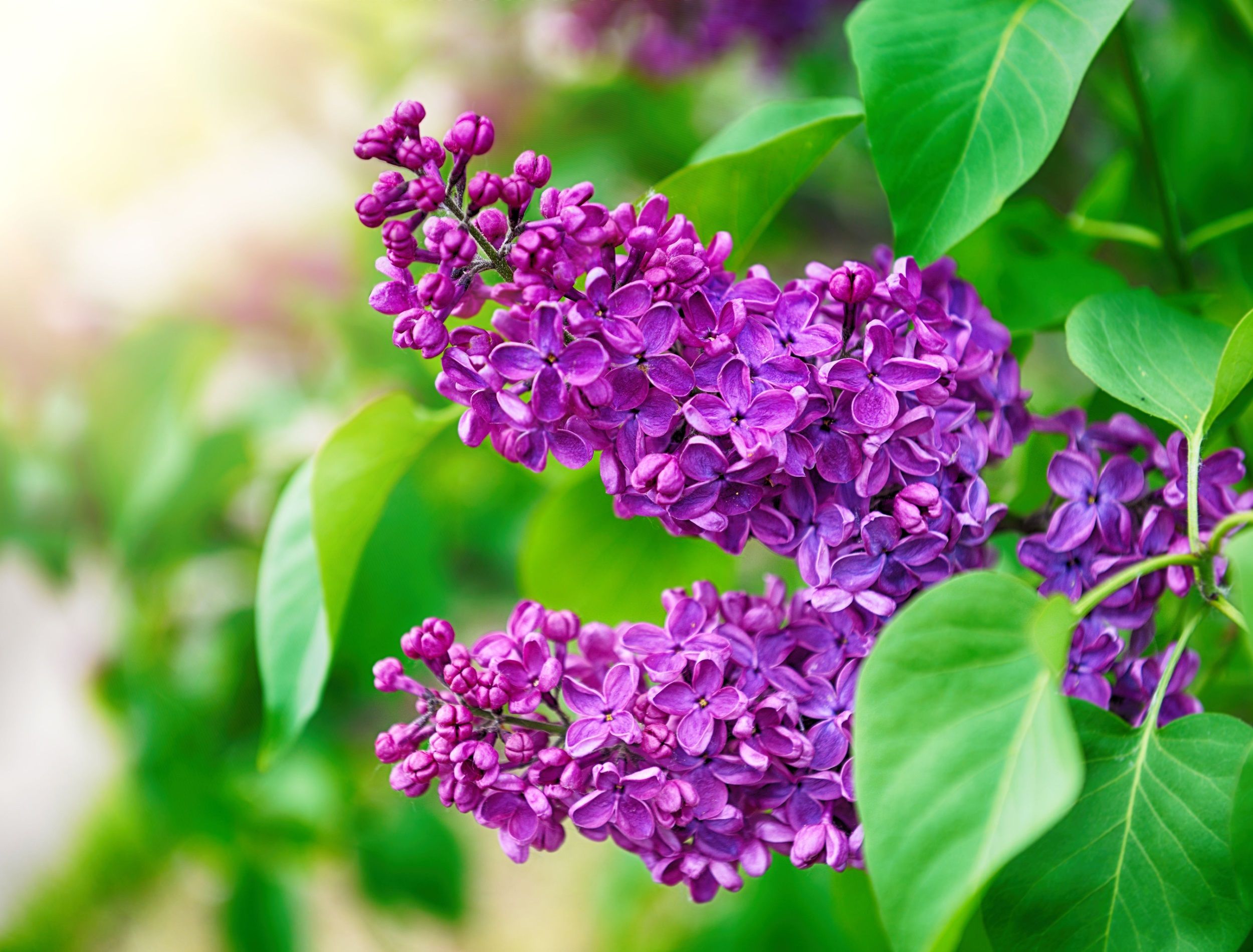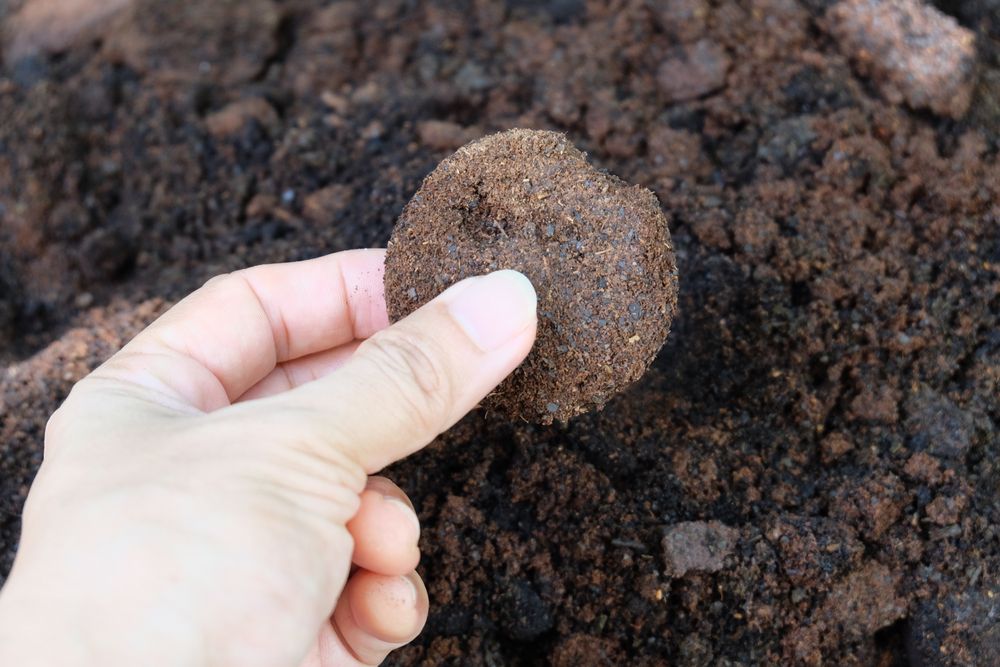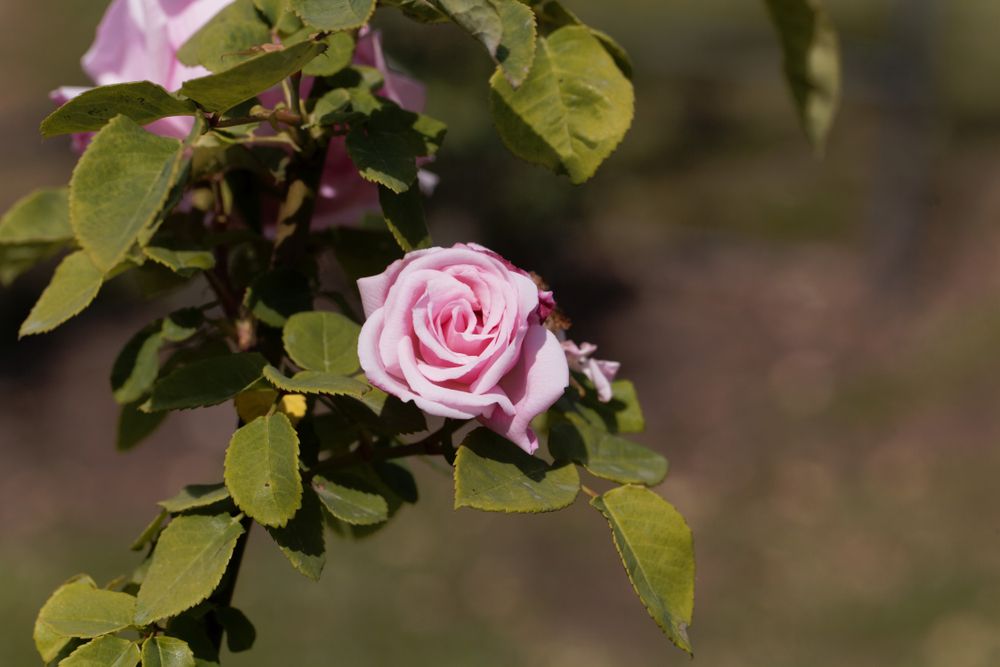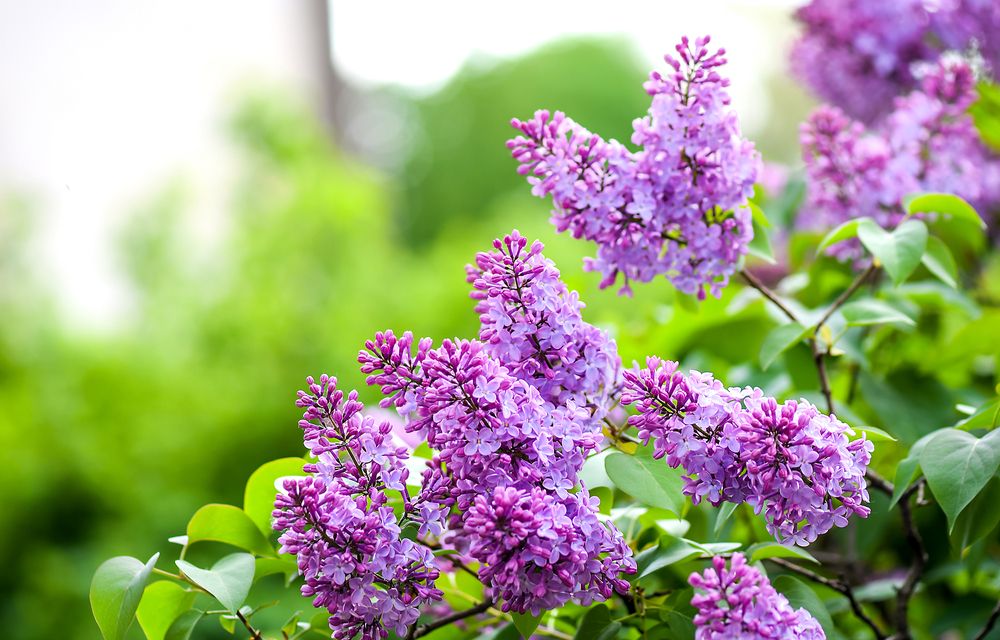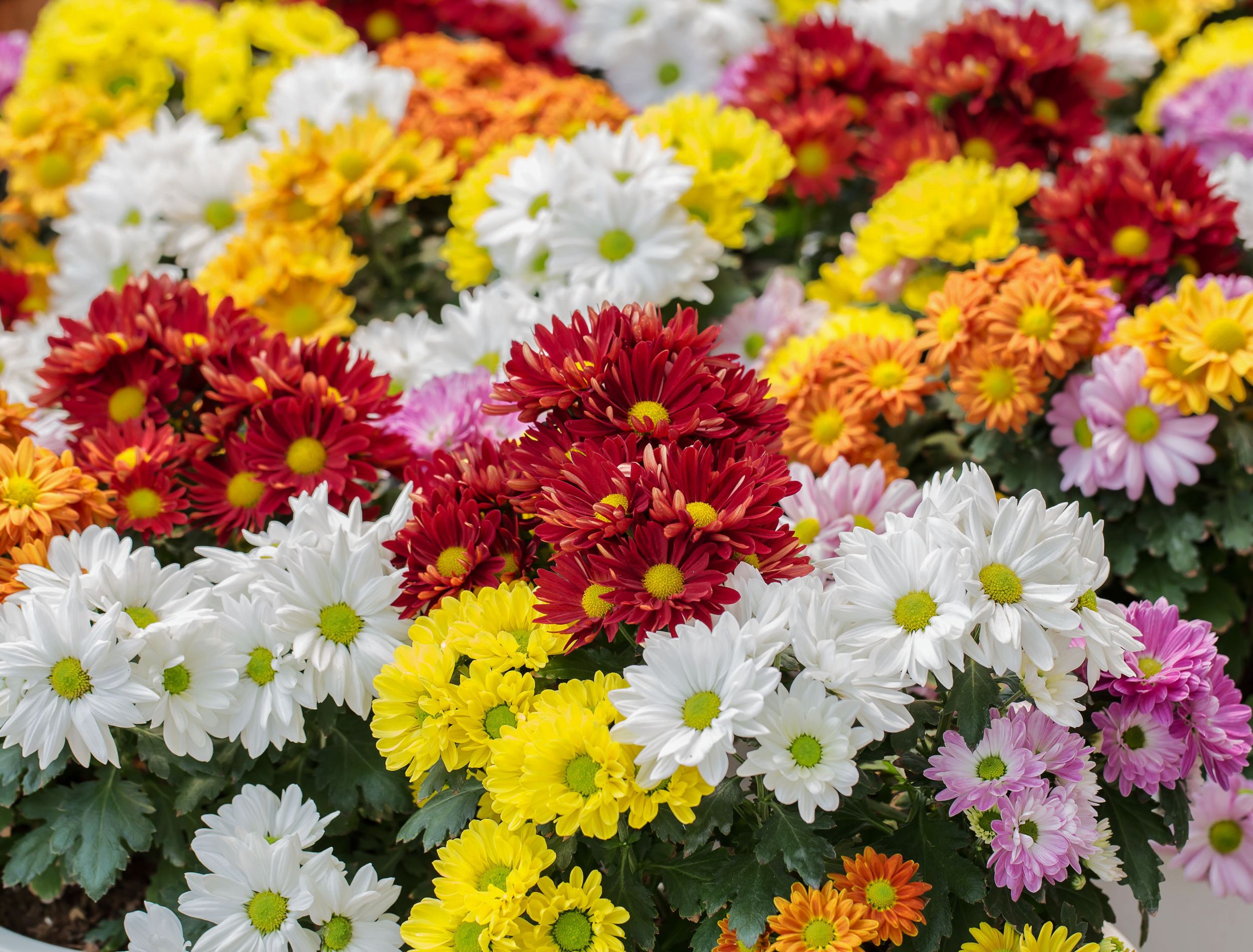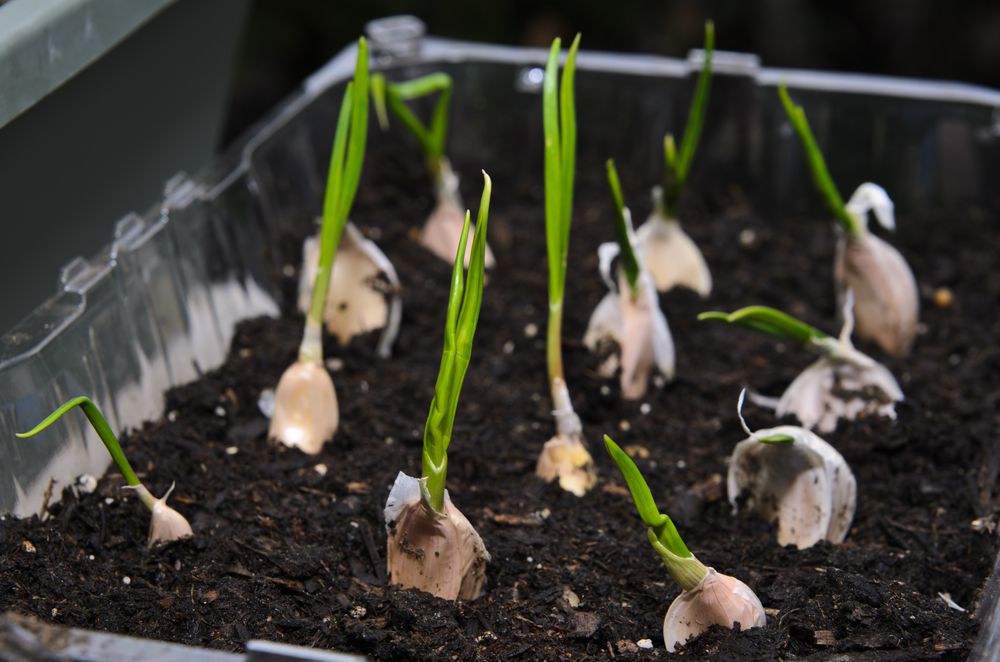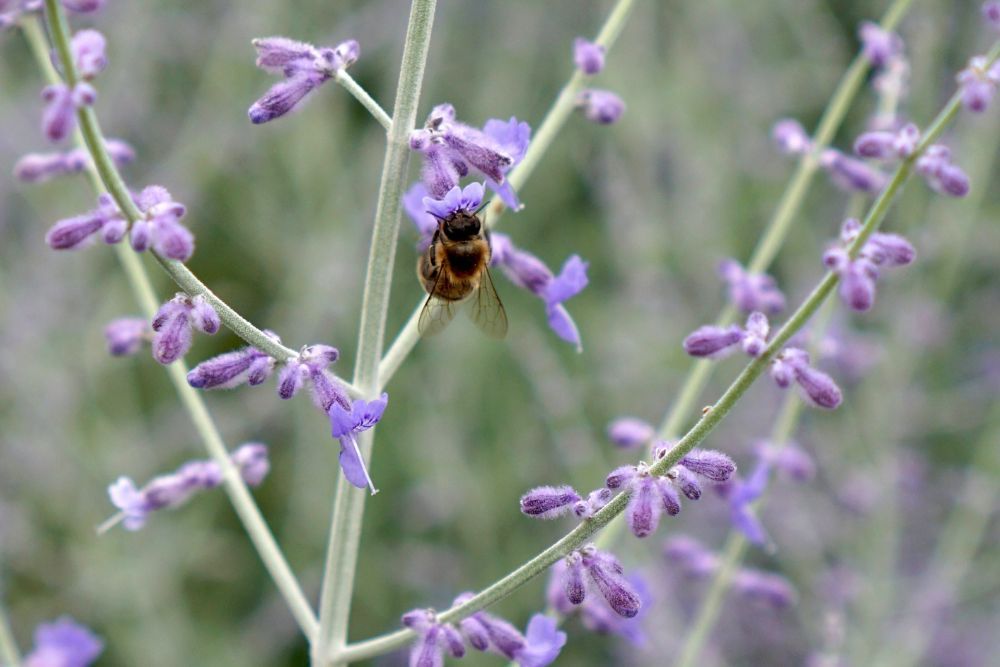Coffee grounds have long been touted as a valuable addition to the garden soil, providing plants with essential nutrients and improving soil structure. However, not all plants are fond of coffee grounds. That's why understanding which plants do not like coffee grounds will allow you to avoid damaging them and keep your garden thriving.
Explore why some plants do not get along with coffee grounds and find a list of common plants you need to keep away from your morning cup of joe. Whether you're a seasoned gardener or just starting, this information will be valuable in ensuring the health and success of your plants.
Why Some Plants Don’t Like Coffee Grounds
Image credits: Weerayuth via Shutterstock
Coffee grounds are known to increase the acidity of the soil because they contain high levels of nitrogen, phosphorus, and potassium, essential nutrients for plant growth. The pH level of coffee grounds is between 6.5 and 6.8, making them slightly acidic.
When you add coffee grounds to the soil, they break down over time and release these nutrients, as well as organic matter. This organic matter helps to maintain the soil structure, improve water retention, and promote the growth of beneficial microorganisms.
While this can be beneficial for acid-loving plants, it can be harmful to plants that do not tolerate acidic soils. Additionally, soil that is too acidic can reduce the availability of essential nutrients for plants that are not well adapted to acidic conditions.
In addition, the high nitrogen content in coffee grounds can lead to overstimulation of foliage growth at the expense of flowering and fruiting. So before adding them to your garden, research your plants' specific needs and provide the right soil conditions and nutrients to keep them healthy and happy.
5 Plants That Don’t Like Coffee Grounds
Roses
Image credits: ChWeiss via Shutterstock
Roses are beautiful and popular plants with specific soil requirements for optimal growth and health. They prefer neutral to slightly alkaline soils with a pH between 6.5 and 7.0. Soil that is too acidic can result in stunted growth, yellow leaves, and reduced blooming.
Therefore, do not use coffee grounds in the soil around roses. Instead, roses benefit from well-draining, fertile soil rich in organic matter. To maintain this soil condition, you can amend the soil with compost, well-rotted manure, or other organic matter like eggshells to increase the pH.
Remember to test the soil pH regularly to ensure it remains within the optimal range for roses.
Lilac Shrubs
Image credits: NikolayTsyu via Shutterstock
Lilac shrubs are beautiful, fragrant plants that are a staple in many gardens. To grow healthy and thriving lilacs, provide them with soil that meets their specific requirements. Lilacs prefer neutral to slightly alkaline soils with a pH of around 7.0.
Like other plants that prefer neutral to slightly alkaline soils, lilacs do not benefit from coffee grounds added to their soil. Instead of helping them thrive, coffee grounds can disturb lilacs' optimum growth.
Mums
Image credits: chatchawin jampapha via Shutterstock
Mums, also known as Chrysanthemums, are popular fall-blooming perennials that add color and texture to gardens and landscapes. To grow healthy and thriving mums, provide them with well-draining soil with a pH between 6.0 and 7.0.
The addition of coffee grounds to the soil is not beneficial for mums. The slight acidity of coffee grounds can decrease the pH balance of the soil and make it more acidic. This shift in soil acidity can have negative impacts on mums. However, with proper soil care, they can thrive and produce an abundance of colorful, long-lasting blooms each fall.
Garlic
Image credits: JeepFoto via Shutterstock
Garlic, the beloved and flavorful herb, is a versatile crop you can grow in various soil types. To reach its full potential, it requires soil that is well-draining and boasts a neutral pH balance between 6.0 and 7.0. Unfortunately, soil that is too acidic or too alkaline can negatively impact the growth and taste of garlic bulbs.
On the other hand, coffee grounds, despite their slight acidity, do not provide any particular advantages for garlic. Adding coffee grounds to the soil can alter the pH balance, which can be harmful to the plant since it thrives in neutral soil conditions.
Lemon Trees
Image credits: spooh via Canva
With their bright and tangy flavor, lemons are a favorite fruit of many. To grow happy and healthy lemon trees, the right soil is key. They prefer well-draining soil with a pH between 6.0 and 7.0. It allows the roots to absorb the nutrients they need to grow strong and produce juicy lemons.
Adding coffee grounds to the soil can cause the pH to drop too much, making the soil too acidic for the lemon tree to thrive. By avoiding coffee grounds and providing the right soil conditions, your lemon tree can grow tall and strong and produce juicy lemons.
Sagebrush
Image credits: ivanastar via Canva
Sagebrush is a hardy shrub native to western North America and can tolerate alkaline soil with a pH of up to 8.5. It prefers well-draining soil and can grow in a variety of soil types, including sandy, loamy, and clay soils.
Sagebrush does not benefit from adding coffee grounds to the soil. Adding them to alkaline soil can further increase its acidity, making it less hospitable for sagebrush.
Russian sage
Image credits: Ewa Angoneze-Grela via Pexels
Russian sage is a hardy perennial plant native to central Asia and can tolerate a wide range of soil conditions. It prefers well-draining soil with a ph above 7.0 that is not too rich in organic matter and can grow in soil types ranging from sandy to clay.
However, since it prefers alkaline soil, it will not benefit from the addition of coffee grounds. Adding them to the soil can lower its pH, making it less welcoming for Russian sage.
No Coffee For You!
Adding coffee grounds to the soil can positively and negatively affect your garden. While some plants benefit from the extra nitrogen and the slightly acidic pH, others do not tolerate acidic soil, and coffee grounds can harm them.
That's why it's important to understand the soil requirements of each plant to ensure that all your plants receive the nutrients they need to grow healthy and strong. By knowing the impact of coffee grounds on your plants, you can create a thriving and diverse garden that provides beauty and enjoyment for years to come.
Have you already used coffee grounds in your garden? Share your experience below!

